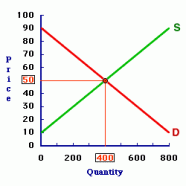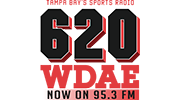Market Efficiency
Futures are not truly efficient markets. This isn’t an earth shattering realization for anyone that has come to Vegas wondering why the Cubs are listed at 15-1 to win the World Series while they have a win total that projects them 25th in the league. In a futures pool it goes without saying there are boatload of teams to bet yet only 1 can win. Depending on who you talk to about expected hold percentage (amount of each dollar wagered the house expects to keep), it should be 1% for each team in smaller markets and capped in that 30-35% range. Meaning for pro sports when there are 30 teams vying for a title, books shouldn’t be collecting .50 cents on the dollar. However, this is far from the case at a number of shops. Rather than operate each futures pool like a truly efficient supply and demand market, the easy thing to do is just bring down prices on the commodities in demand while failing to make an effort to sell others. This doesn’t hold true for every shop but as a bettor it’s your responsibility to identify competitive prices instead of claiming the books have an “ethical” obligation to offer fair value.
Having worked in the casino business, both in the sportsbook and analytics, the buzz word was yield. Whether it’s a table game’s limit, hotel room, or show ticket free market economics determine maximum efficiency is realized by selling the right product to the right person at the right price. What does this mean? Nothing more than you don’t sell someone a hotel room for $59 a night if they’re willing to spend $109 because all you end up doing is leaving money on the table. The exact same principles hold true for sportsbooks; if customers are willingly betting into bad prices because they either don’t know better or aren’t price sensitive, what’s the incentive to give them a better product?
What you see at a handful of books intent on offering a competitive price to their customers is a yes / no line on each proposition. It’s very easy for an operator to offer 50 possibilities to pay 1 winner while gouging every price. However, if say for example Tiger Woods is 5-2 and you offer your customers a no price at -400, you’ll know right away if the market is mispriced because you’ll take a deluge of money on one side or the other. I know what you’re thinking; books can offer absurd prices on this as well but generally speaking if a sportsbook is willing to offer a yes/no type proposition on a futures outcome they’re in the business to be competitive.
Like any other field where you have markets and consumers, so much in sports betting is dictated by the bettor. If gamblers refuse to bet into certain pools, sportsbooks are forced to be more competitive with their pricing. Efficient markets are one thing in finance given the investor’s ability to buy or short stocks whereas sports betting is still reserved more for the price takers. Eventually the entire industry will reach a point where educated consumers will expect the same type of competitive balance from their sportsbooks they do in every other walk of life. Until that happens, futures pools will continue to be a bookmaker’s best friend when managed correctly.












